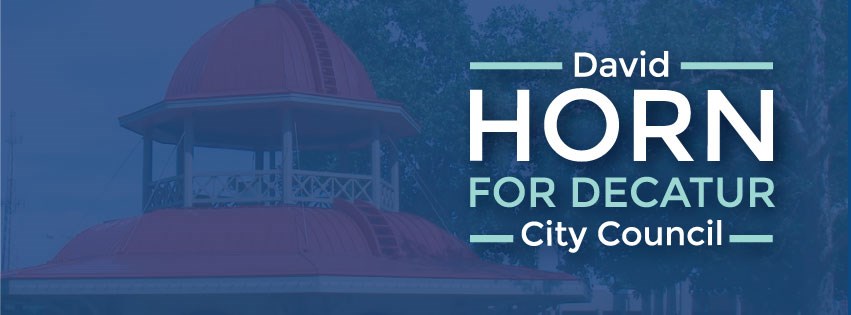
Decatur's 3% property tax increase signals challenges ahead
Last year, the Decatur City Council approved a 3% increase in the total amount of property tax the city collects. The city’s portion of one’s total tax bill is approximately 16%. Other large taxing bodies include Decatur Public Schools, Decatur Park District, and Macon County. These bodies independently approve different (and in many cases larger) increases in property taxes than city government.
Tax increases, and particularly property tax hikes, are extremely unpopular. So why did the city council decide to raise property taxes 3%? Weeks before the vote, city staff provided 3 options for a property tax increase: 7%, 11% and 36%. I would have voted against these options, and instead argued that if the city is going to increase property taxes, the increase should be connected to the city’s economic growth. The 3% increase represents the non-inflationary increase in the city’s Equalized Assessed Value (EAV) that is a result of new construction, building additions, and annexations from the previous year. As the city grows, there is a larger tax base, and any given property owner should pay less property taxes. This partially explains why even though the amount of property taxes city government collected will go up 3%, the city’s property tax rate is projected to go down 7% from $1.619 to $1.505 per $100 of assessed value. Unfortunately, this coming year property owners will likely see an increase in the portion of one’s property tax that goes to the city due to substantial housing inflation (i.e., even if the tax rate goes down 7%, if the assessed value of your property goes up due to inflation, you may still have to pay more taxes).
CITY’S OBLIGATIONS CONTINUE TO GROW AND ARE BEING PAID THROUGH OTHER TAXES AND FEES
While it is critical for the city to grow and for property tax rates to decrease, it is important to note that the city is using other funds to pay millions of dollars in obligations that property taxes have historically have paid for. As two examples, in 2024 the city of Decatur will use $2,061,540 in water and sewer funds to pay for public safety pension obligations (known as PILOTs – payments in lieu of taxes), and will spend $959,885 to pay for the debt associated with downtown improvements made many years ago. In other words, in order to keep property tax rates as low as possible, the city is paying those obligations using other means, whether that be through increases in water and sewer rates, or by using other taxes the city receives (e.g., food and beverage tax, utility tax, etc.). Water and sewer rates are going up substantially in 2024, and the funds are being used to pay for expenses that are not related to water and sewers. This is one of the reasons why the city council will be exploring other revenue sources such as a streaming tax and storage unit fees in 2024. Furthermore, if the majority of the city council continues to prohibit new sources of revenue and growth such as a cannabis dispensary and cannabis-related businesses such as a cultivation center for which only a small group of individuals are impacted, citizens can continue to expect new taxes that impact a larger group (i.e., streaming tax).
CITY SHOULD STRIVE TO INCREASE THE TAX BASE AND REDUCE THE AMOUNT OF PROPERTY TAXES COLLECTED
In my view, the city of Decatur should not increase property taxes beyond the city’s level of economic growth and should strive to reduce the amount of property tax it collects. Reducing the property tax rate is critical to housing stability in the city. According to the real estate company ATTOM, in the second quarter of 2023, Macon County, IL had the highest percentage of home loans underwater in the U.S. (17.6%) and the likelihood of a Macon County property with a foreclosure filing is 12.9 times greater than the national average. There are thousands of families in Decatur who are mortgage- or rent-distressed. Thus, it is critical that the city council do what it can to reduce the financial burden of homeownership.
The city council must also do more to increase the number of people living here. Improvements to the Johns Hill Neighborhood represent an excellent example of how this can be accomplished in the urban core. The city received a $1.25 million grant in 2020 to fund demolitions, cleanups, and lot acquisitions in the Johns Hill Neighborhood. The neighborhood has seen a reduction in crime since the neighborhood was improved (36% reduction in the count of offenses in July-June 2022-2023 vs. July-June 2018-2019), and the neighborhood has seen a substantial increase in civic engagement that is critical to building the community.
